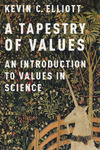Please use this identifier to cite or link to this item:
http://lib.hpu.edu.vn/handle/123456789/24785Full metadata record
| DC Field | Value | Language |
|---|---|---|
| dc.contributor.author | Elliott, Kevin Christopher | en_US |
| dc.date.accessioned | 2017-03-21T09:05:13Z | |
| dc.date.available | 2017-03-21T09:05:13Z | |
| dc.date.issued | 2017 | en_US |
| dc.identifier.isbn | 9780190260811 | en_US |
| dc.identifier.isbn | 9780190260804 | en_US |
| dc.identifier.other | HPU2161236 | en_US |
| dc.identifier.uri | https://lib.hpu.edu.vn/handle/123456789/24785 | - |
| dc.description.abstract | The role of values in scientific research has become an important topic of discussion in both scholarly and popular debates. Pundits across the political spectrum worry that research on topics like climate change, evolutionary theory, vaccine safety, and genetically modified foods has become overly politicized. At the same time, it is clear that values play an important role in science by limiting unethical forms of research and by deciding what areas of research have the greatest relevance for society. Deciding how to distinguish legitimate and illegitimate influences of values in scientific research is a matter of vital importance. Recently, philosophers of science have written a great deal on this topic, but most of their work has been directed toward a scholarly audience. This book makes the contemporary philosophical literature on science and values accessible to a wide readership. It examines case studies from a variety of research areas, including climate science, anthropology, chemical risk assessment, ecology, neurobiology, biomedical research, and agriculture. These cases show that values have necessary roles to play in identifying research topics, choosing research questions, determining the aims of inquiry, responding to uncertainty, and deciding how to communicate information. Kevin Elliott focuses not just on describing roles for values but also on determining when their influences are actually appropriate. He emphasizes several conditions for incorporating values in a legitimate fashion, and highlights multiple strategies for fostering engagement between stakeholders so that value influences can be subjected to careful and critical scrutiny. | en_US |
| dc.format.extent | 225 p. | en_US |
| dc.format.mimetype | application/pdf | - |
| dc.language.iso | en | en_US |
| dc.publisher | Oxford University Press | en_US |
| dc.subject | Research | en_US |
| dc.subject | Moral | en_US |
| dc.subject | Ethical aspects | en_US |
| dc.title | A tapestry of values: an introduction to values in science | en_US |
| dc.type | Book | en_US |
| dc.size | 1.61 MB | en_US |
| dc.department | English resources | en_US |
| Appears in Collections: | Sociology | |
Files in This Item:
| File | Description | Size | Format | |
|---|---|---|---|---|
| 39_A_tapestry_of_values.pdf Restricted Access | 1.66 MB | Adobe PDF |  View/Open Request a copy |
Items in DSpace are protected by copyright, with all rights reserved, unless otherwise indicated.
